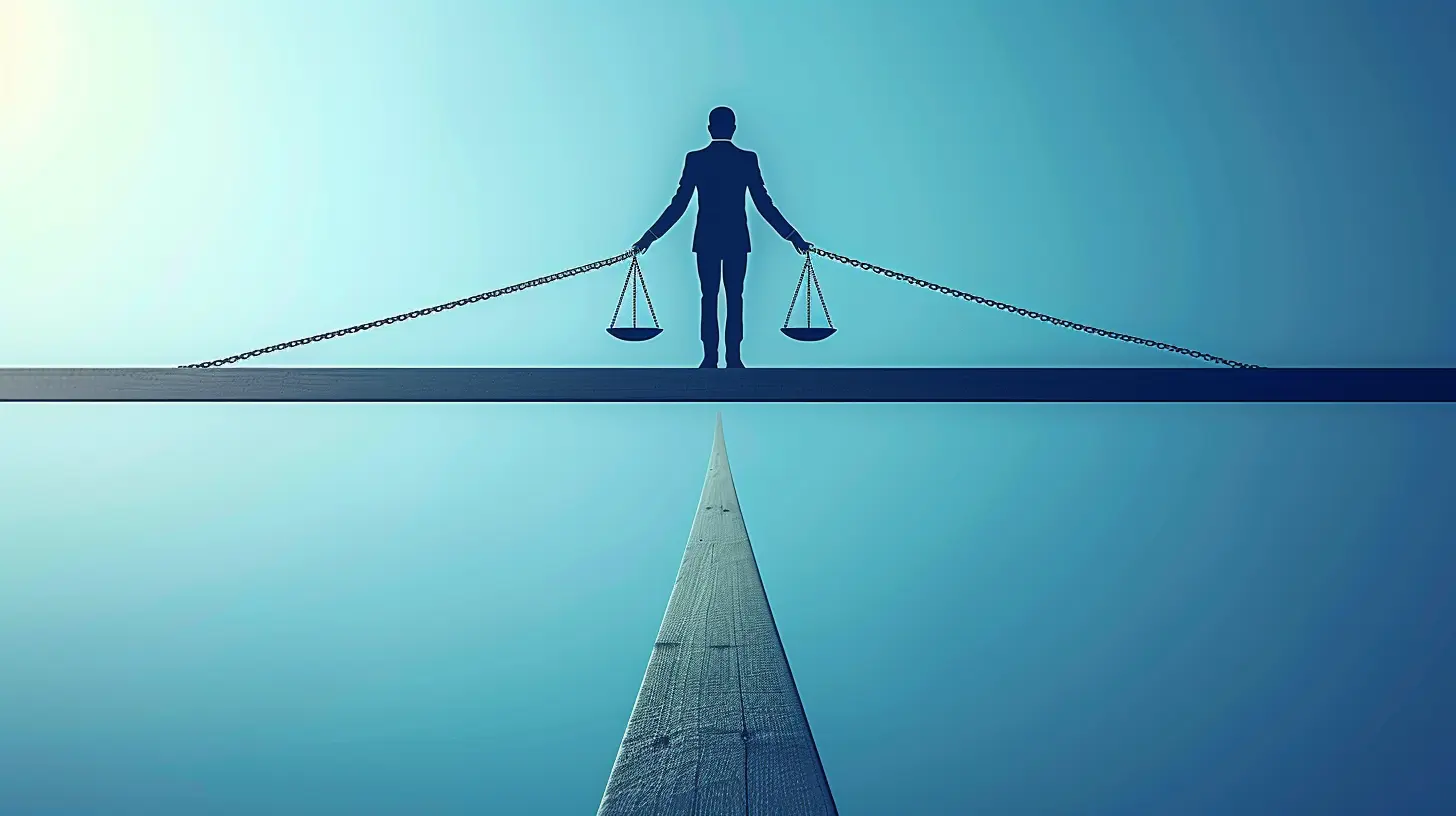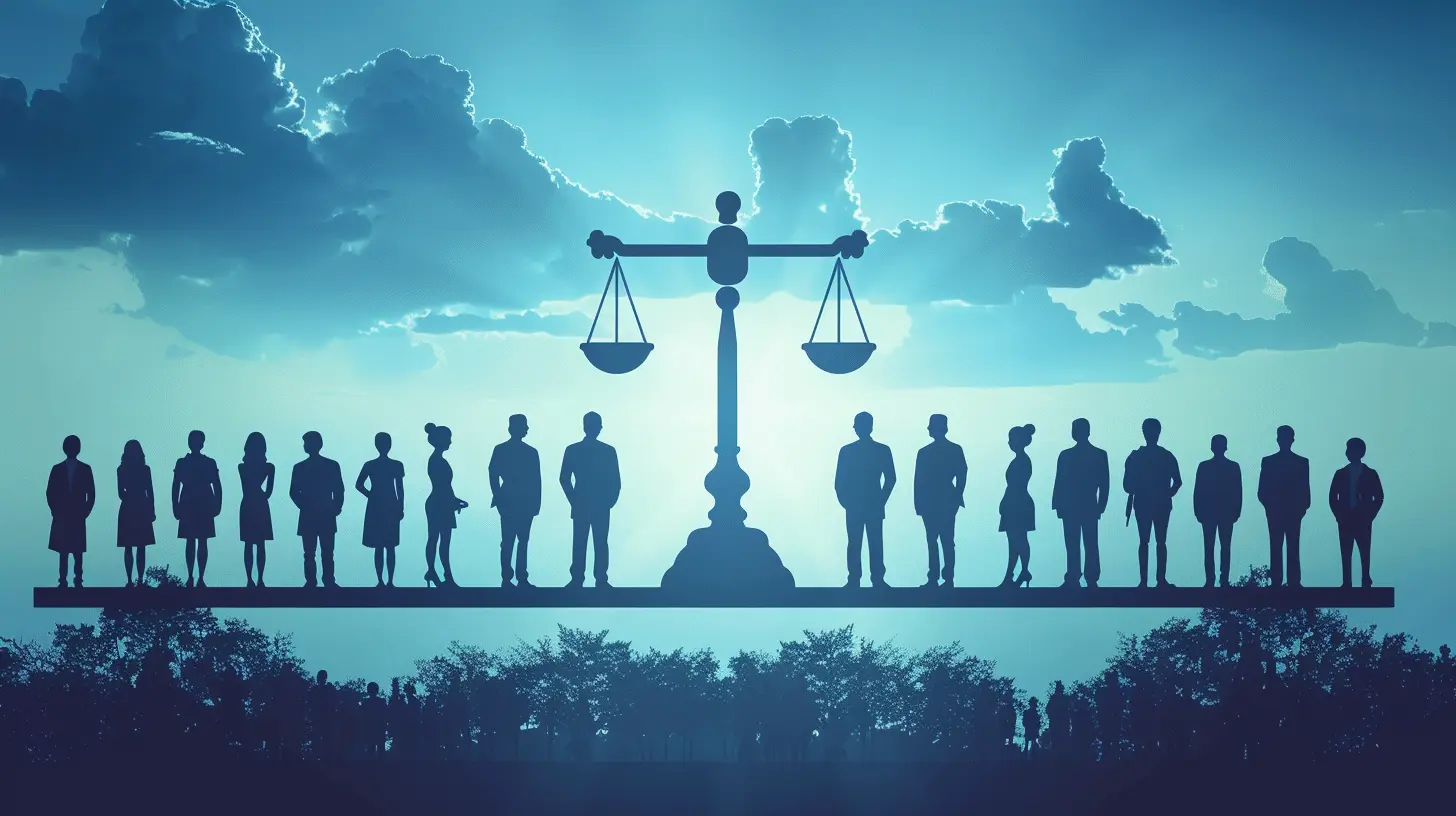The Importance of Ethical Decision-Making in Skill Development
8 August 2025
Have you ever thought about what truly sets great professionals apart from the rest? Is it talent? Hard work? Maybe years of experience? Sure, those things matter. But there’s something even more critical that often flies under the radar—ethical decision-making. Yep, ethics. It’s not just a fancy word we throw around in business meetings or lectures. When it comes to skill development, it plays a massive role. And trust me, ignoring it is like building a house on sand.
In this article, we're diving deep into why ethical decision-making is so important when you're learning new skills or leveling up your current ones. Think of it as the invisible compass that helps you grow not just as a professional, but as a trustworthy, reliable human being.
What Does Ethical Decision-Making Really Mean?
Before we tie ethics with skill development, let’s break things down a bit.At its core, ethical decision-making is about choosing right over wrong. It’s making choices that align with moral values such as honesty, fairness, respect, and accountability. Sounds simple, right? But in practice, it can be tricky. Especially when the “wrong” path is easier, quicker, or more lucrative—yeah, the real world can be messy.
Now, imagine you're learning a new skill, say coding or financial planning. The decisions you make during this learning journey—how you acquire information, how you use it, and how you treat others along the way—reflect your ethical compass.
Connecting Ethics with Skill Development: Why It Matters
So, what do ethics have to do with learning Excel or marketing strategies? Short answer: everything.When you're developing skills, especially in today’s digital age, you're not just learning "how to do things". You're also learning "how to be". Ethics guide that second part.
Here’s why ethical decision-making is non-negotiable during the skill-building process:
1. Builds Trust and Credibility
If you're seen as someone who makes fair and honest decisions, people naturally want to work with you. Whether it's in school, your first job, or running your business—trust is currency. And trust is built when others see you consistently making ethical decisions.Would you want to partner with someone who lies to get ahead or plagiarizes their work? Of course not. So, don’t be that person.
2. Encourages Long-Term Success
Quick wins are tempting. Cutting corners might help you finish faster. But think long-term. Ethical foundations keep your success sustainable. People with strong ethical values tend to rise steadily—maybe not as quickly, but definitely more securely.Short-term gains from unethical behavior? They often come with long-term pain.
3. Enhances Decision-Making Skills
When you factor ethics into every decision, you develop stronger judgment abilities. You start asking better questions: Is this right? Could this harm someone? Is there a better way?Over time, making smart, ethical decisions becomes second nature—and that’s a solid skill in itself!
Real-Life Examples: Ethics in Action
Sometimes, stories explain things better than theories. So, let’s look at how ethical decision-making plays out in real scenarios involving skill development.Case 1: The Programming Dilemma
Meet Alex, a budding programmer. He’s stuck on a project and tempted to copy and paste someone else’s code from Stack Overflow. Easy, right?But instead, he chooses to study the logic, understand it, and then create his own solution. It takes longer. But through the process, Alex not only learns the skill properly but also builds integrity. His instructor notices his originality and later recommends him for an internship.
Case 2: The Marketing Shortcut
Then there's Nisha, a digital marketing student. She's tasked with running a mock social media campaign. She finds a popular influencer’s strategy and thinks about copying it entirely.Instead, she adapts the idea with her own twist, gives credit, and creates something new. Her campaign gets noticed for its authenticity. She learns more. And guess what? Her ethical choice leads to real mentorship opportunities.
Ethical Pitfalls to Watch Out For During Learning
We all want to succeed. But sometimes, that desire can push us into gray areas. Here are a few common ethical traps to watch out for when you're learning or upgrading skills:1. Plagiarism
Copy-pasting without giving credit? Big no-no. It’s not just lazy, it’s dishonest. Even if you “change a few words,” always cite your sources.2. Faking Competence
Ever pretend you know how to do something when you actually don't? While it might save face temporarily, it can backfire. Owning your limitations is far better—and it shows humility and a willingness to grow.3. Exploiting Others’ Work
Group projects are teamwork territory. Don’t take credit for someone else’s effort. It’s not just unfair; it’s unethical and deeply damaging to trust.How to Stay Ethical During Skill Development
Great, so we’ve covered what to avoid. But how do you actively make ethical choices while developing new skills? Here’s your go-to guide:1. Be Honest With Yourself and Others
It all starts here. If you don’t know something, admit it. Want help? Ask for it. Transparency builds trust and leads to better learning outcomes.2. Always Give Credit
Whether it’s an image, a quote, or a lesson you learned from someone else—acknowledge the source. Giving credit doesn’t reduce your value. It actually boosts your credibility.3. Keep the Bigger Picture in Mind
Whenever you face a tough decision, zoom out. Ask yourself: What kind of professional do I want to be? Then act accordingly.4. Reflect Often
Take time to think about your decisions. Were they fair? Did they align with your values? Self-reflection is a powerful tool for ethical growth.The Role of Educators and Mentors
Ethics isn't something we’re born with—it’s taught, modeled, and reinforced.Educators and mentors play a huge part here. By practicing fairness, encouraging open discussions, and setting clear expectations, they can help students and learners internalize ethics right from the get-go.
If you’re a teacher, don’t just teach skills—teach the values that should come with them. If you’re a student, don’t be afraid to ask your mentors for guidance on tough ethical situations. That’s what they’re there for.
Why Employers Value Ethics in Skilled Workers
Let’s flip the perspective for a moment. Imagine you’re an employer hiring someone for a project. You’ll definitely look at their skills. But would you hire someone who lies about their experience or takes credit for someone else’s work—even if they're technically great at it?Absolutely not.
Ethical behavior is just as important as technical proficiency. In fact, it’s often the tie-breaker. Employers want people they can trust—team members who will do the right thing even when no one’s watching.
In short, ethics is not a side dish. It’s part of the main course.
Tech and the Ethics Challenge
Let’s not ignore the elephant in the room—technology. With AI, automation, and endless online tools, it's now easier than ever to cheat, plagiarize, or fake skills.But here’s the kicker: tech also makes unethical decisions more traceable. A copied line of code, a suspicious file edit, a misleading social media post—someone will catch it.
So while tech throws a few ethical curveballs, it also reinforces the need to choose rightly. Consider it your virtual conscience.
Final Thoughts: Ethics Isn’t Optional
If there’s one thing you should walk away with, it’s this: ethical decision-making isn't just a "nice-to-have" when developing skills—it’s essential.It’s what shapes us into professionals that people admire, respect, and want to work with. It’s the secret ingredient that adds depth to your abilities and character to your competence.
So next time you're learning something new, don’t just ask, “Can I do this?” Ask, “Should I?”
Your skills will thank you. And so will the people around you.
all images in this post were generated using AI tools
Category:
Skill DevelopmentAuthor:

Madeleine Newton
Discussion
rate this article
1 comments
Ruby Flores
Thank you for highlighting the critical role of ethical decision-making in skill development. It’s a vital aspect that shapes not only professionals but also society as a whole.
August 22, 2025 at 2:43 AM

Madeleine Newton
Thank you for your insightful comment! I appreciate your recognition of the broader impact ethical decision-making has on both individuals and society.


